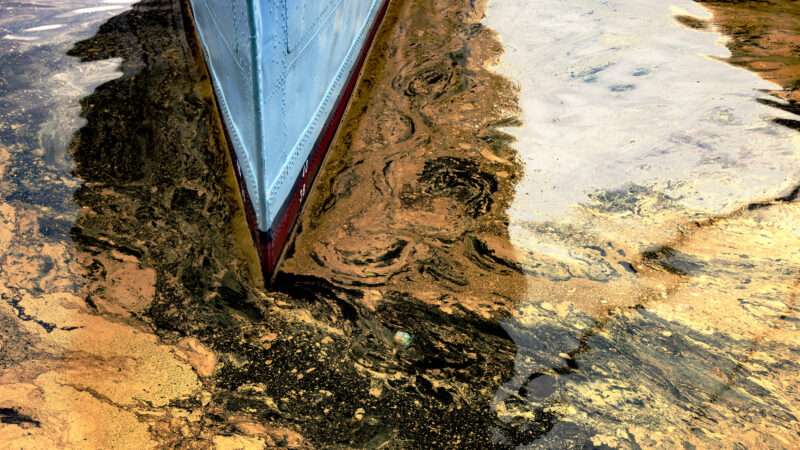
A leak from a World War II-era military fueling facility could shut down all new construction on Hawaii's most populous island.
For months now, water officials on the island of Oahu have been scrambling to contain the effects of a fuel leak from the U.S. Navy's 80-year-old Red Hill underground fuel storage facility into the freshwater aquifer it sits atop.
Fear of pumping contaminated water from that aquifer into people's homes has led the Honolulu Board of Water Supply (BWS) to close down several wells close to the Red Hill facility. That includes the Halawa well, which provides 20 percent of metro Honolulu's water.
The closure of wells combined with an ongoing drought has created a water shortage on the island, which is now forcing BWS to consider escalating conservation methods.
Since March 10, BWS has asked Oahu residents to voluntarily restrict their water usage by 10 percent. At a briefing of Hawaii senators earlier this week, first reported by the Honolulu Civil Beat, BWS also outlined an escalating series of conservation measures, ranging from the closure of public pools to a development moratorium on the island.
The Civil Beat reports that BWS has already started sending letters to developers informing them that they can't guarantee they'll be able to approve applications for new or larger water meters in the near future.
At Monday's senate briefing, BWS's Barry Usagawa described other restrictions the board could impose on new construction. Those could include requiring developers to recycle greywater, capture stormwater, or install high-efficiency water fixtures.
The prospects of a development moratorium are worrisome for an island and state that already suffers from the highest housing costs in the country.
Overall rents in urban Honolulu are currently the second-highest in the country, according to data from Apartment List, behind only Ventura, California. Zillow ranks the city as the ninth most expensive rental market. Either way, it's not a cheap place to find an apartment. The median home price in Oahu is $1.1 million.
An alternate approach to this kind of rationing would be to let water prices on Oahu rise to reflect the reduction in the island's water supply. Higher prices would give businesses, residents, had government agencies more flexibility and freedom in figuring out how to cope with less water. That decentralized decision-making would probably do a better job of cutting down on frivolous water use, while still hydrating truly critical activities.
Letting water prices do their job in a crisis is effectively prohibited by Honolulu's County Charter. On the one hand, it gives the BWS near-unlimited power to impose water conservation measures in a shortage. Raising water rates on everyone, meanwhile, requires public consultation and hearings. (BWS does have the power to impose fines on people who bust through water restrictions.)
However, like groundwater, markets manage to leak into everything eventually. Honolulu limits the role prices can play in rationing water, but there's no getting around the fact that a water shortage is making living on the island more expensive. If BWS goes ahead with a development moratorium, those costs will be smuggled into higher rents and home prices.
Obviously, the main bad guy in this story is the Navy and federal government more broadly. It's kept its Red Hill fueling facility open for years despite mounting criticism from water officials and environmentalists.
When local authorities tried to shut down the Red Hill facility after the leak, the U.S. Department of Justice sued to keep it open. Earlier this month, it reversed course and said that it would work to "defuel" the facility. That will take a while, however. BWS has new wells and desalination projects in the works to expand supply, but those will also take several years to complete.
In the meantime, raising prices to reflect the scarcity of fresh water would constrain consumption until more supply is available.
The post A Fuel Leak From a Navy Facility Could Shut Down All New Development on Hawaii's Most Populous Island appeared first on Reason.com.







